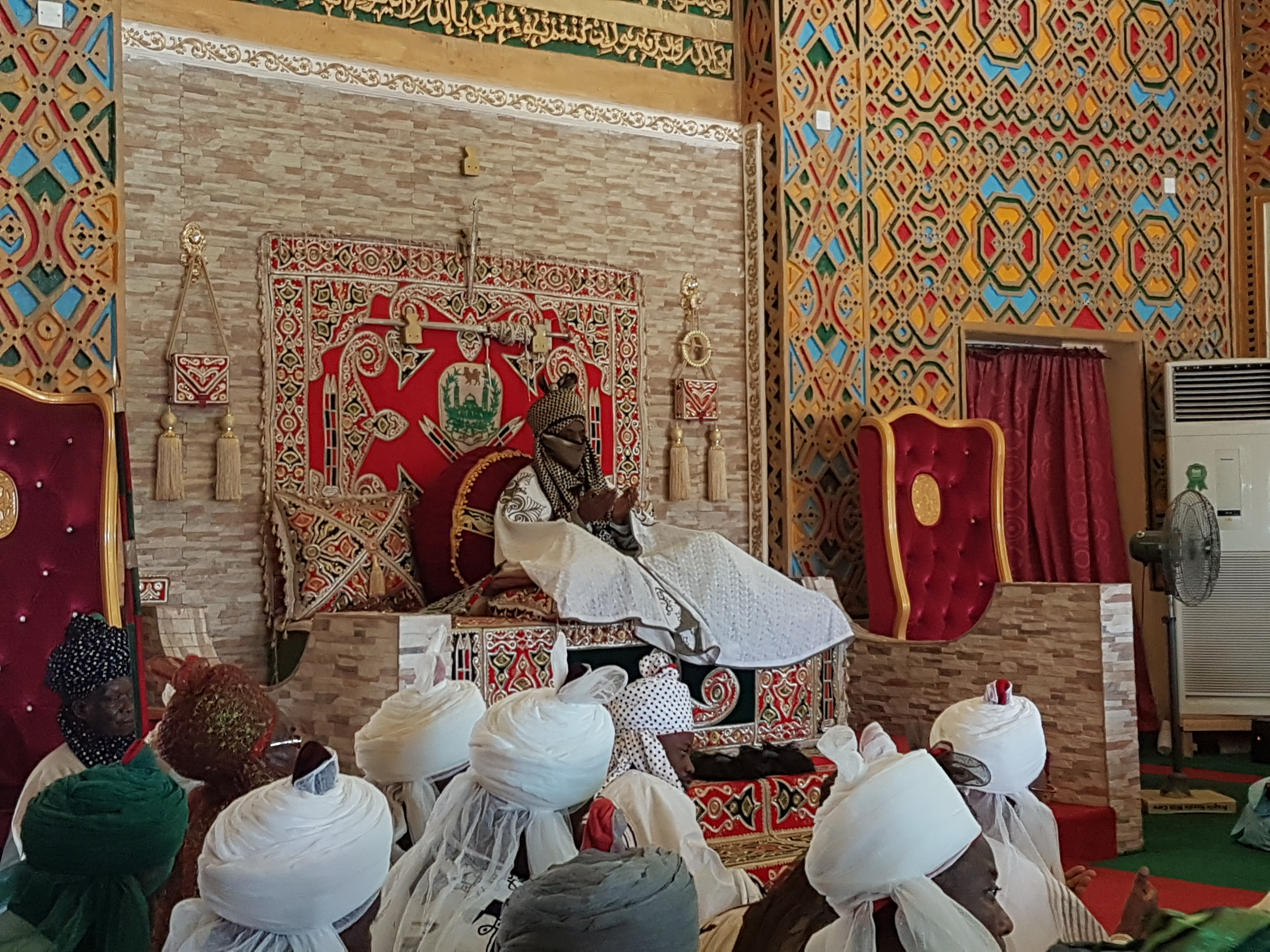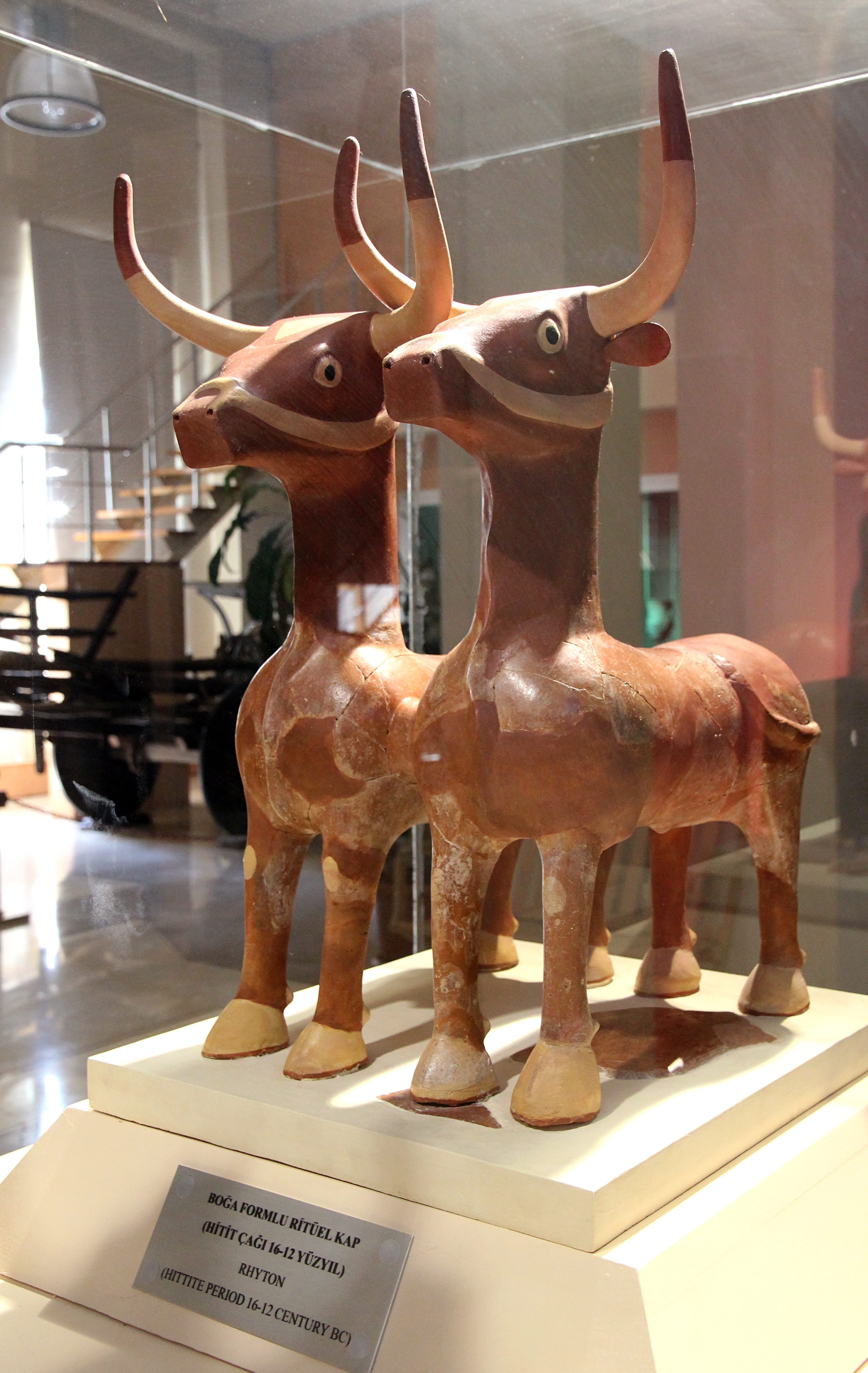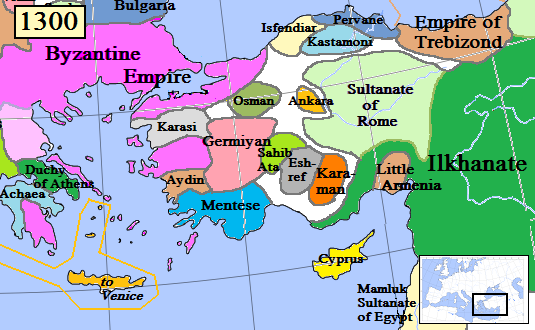|
Shadgeldi
Hajji Sayf al-Din Shadgeldi Padishah (Old Anatolian Turkish: ; died 1381) was Emir of Amasya from 1359 until his death. He was the second oldest son of Hajji Kutlu Shah and became the emir of Amasya in August–September 1359. He received his education from Mawlana Fakhr al-Din Ilyas in Amasya and was a classmate of Aqsara'i. He was initially loyal to Eretna but exercised autonomy following his death. Early life and first reign Shadgeldi was the second eldest son of Hajji Kutlu Shah. He received his education from Mawlana Fakhr al-Din Ilyas in Amasya and was a classmate of Aqsara'i. Hajji Kutlu Shah appointed him as the emir of Amasya in August–September 1359 and sent his older brother and former Emir of Amasya, Shihab al-Din Ahmad Shah, to govern Sivas, departing to fight off the Karamanids. When Kutlu Shah died and most of the military was abroad with him, Shadgeldi was forced out of Amasya by Ala al-Din Ali Beg, who claimed rule in 1361. Second reign Several months later, Sha ... [...More Info...] [...Related Items...] OR: [Wikipedia] [Google] [Baidu] |
Amasya
Amasya () is a city in northern Turkey, in the Black Sea Region. It was called Amaseia or Amasia in antiquity."Amasya" in ''Encyclopædia Britannica, The New Encyclopædia Britannica''. Chicago: Encyclopædia Britannica Inc., 15th edn., 1992, Vol. 1, p. 313. It is the seat of Amasya Province and Amasya District.İl Belediyesi Turkey Civil Administration Departments Inventory. Retrieved 12 January 2023. Its population is 114,921 (2021). Amasya stands in the mountains above the Black Sea (Karadeniz) coast, set apart from the rest of Anatolia in a narrow valley along the banks of the Yeşilırmak (river), Yeşilırmak River. Although near the Black Sea, this area is high above the coast and has an inland climate, well-suited to growing apples, for which Amasya province, one of the provinces in north-centr ... [...More Info...] [...Related Items...] OR: [Wikipedia] [Google] [Baidu] |
Eretna
Ala al-Din Eretna (Old Anatolian Turkish: ; died February–August 1352) was the first sultan of the Eretnids, reigning from 1343 to 1352 in central and eastern Anatolia. Initially an officer in the service of the Ilkhanate officer Chupan and his son Timurtash, Eretna migrated to Anatolia following Timurtash's appointment as the Ilkhanid governor of the region. He took part in Timurtash's campaigns to subdue the Turkoman chiefs of the western periphery of the peninsula. This was cut short by Timurtash's downfall, after which Eretna went into hiding. Upon the dissolution of the Ilkhanate, he aligned himself with the Jalayirid leader Hasan Buzurg, who eventually left Anatolia for Eretna to govern when he returned east to clash with the rival Chobanids and other Mongol lords. Eretna later sought recognition from Mamluk Egypt to consolidate his power, although he played a delicate game of alternating his allegiance between the Mamluks and the Mongols. In 1343, he declared independ ... [...More Info...] [...Related Items...] OR: [Wikipedia] [Google] [Baidu] |
Emir
Emir (; ' (), also Romanization of Arabic, transliterated as amir, is a word of Arabic language, Arabic origin that can refer to a male monarch, aristocratic, aristocrat, holder of high-ranking military or political office, or other person possessing actual or ceremonial authority. The title has a history of use in West Asia, East Africa, West Africa, Central Asia, and South Asia. In the modern era, when used as a formal monarchical title, it is roughly synonymous with "prince", applicable both to a son of a hereditary monarch, and to a reigning monarch of a sovereign principality, namely an emirate. The female, feminine form is emira ( '), with the same meaning as "princess". Prior to its use as a monarchical title, the term "emir" was historically used to denote a "commander", "general", or "leader" (for example, Amir al-Mu'min). In contemporary usage, "emir" is also sometimes used as either an honorary or formal title for the head of an Islamic, or Arab (regardless of relig ... [...More Info...] [...Related Items...] OR: [Wikipedia] [Google] [Baidu] |
Islam
Islam is an Abrahamic religions, Abrahamic monotheistic religion based on the Quran, and the teachings of Muhammad. Adherents of Islam are called Muslims, who are estimated to number Islam by country, 2 billion worldwide and are the world's Major religious groups, second-largest religious population after Christians. Muslims believe that Islam is the complete and universal version of a Fitra, primordial faith that was revealed many times through earlier Prophets and messengers in Islam, prophets and messengers, including Adam in Islam, Adam, Noah in Islam, Noah, Abraham in Islam, Abraham, Moses in Islam, Moses, and Jesus in Islam, Jesus. Muslims consider the Quran to be the verbatim word of God in Islam, God and the unaltered, final revelation. Alongside the Quran, Muslims also believe in previous Islamic holy books, revelations, such as the Torah in Islam, Tawrat (the Torah), the Zabur (Psalms), and the Gospel in Islam, Injil (Gospel). They believe that Muhammad in Islam ... [...More Info...] [...Related Items...] OR: [Wikipedia] [Google] [Baidu] |
Old Anatolian Turkish
Old Anatolian Turkish or Old Turkish, also referred to as Old Anatolian Turkic, (, Perso-Arabic script: اسکی انادولو تورکچهسی), was the form of the Turkish language spoken in Anatolia from the 11th to 15th centuries. It developed into Early Ottoman Turkish. It was written in the Perso-Arabic script. Unlike in later Ottoman Turkish, short-vowel diacritics were used. It had no official status until 1277, when Mehmet I of Karaman declared a firman in an attempt to break the dominance of Persian: , dir="rtl", : , : , :''From now on nobody in the palace, in the divan, council, and at the hearings should speak any language other than Turkish.'' History It has been erroneously assumed that the Old Anatolian Turkish literary language was created in Anatolia and that its authors transformed a primitive language into a literary medium by submitting themselves to Persian influence. In reality, the Oghuz Turks who came to Anatolia brought their own written ... [...More Info...] [...Related Items...] OR: [Wikipedia] [Google] [Baidu] |
Emir
Emir (; ' (), also Romanization of Arabic, transliterated as amir, is a word of Arabic language, Arabic origin that can refer to a male monarch, aristocratic, aristocrat, holder of high-ranking military or political office, or other person possessing actual or ceremonial authority. The title has a history of use in West Asia, East Africa, West Africa, Central Asia, and South Asia. In the modern era, when used as a formal monarchical title, it is roughly synonymous with "prince", applicable both to a son of a hereditary monarch, and to a reigning monarch of a sovereign principality, namely an emirate. The female, feminine form is emira ( '), with the same meaning as "princess". Prior to its use as a monarchical title, the term "emir" was historically used to denote a "commander", "general", or "leader" (for example, Amir al-Mu'min). In contemporary usage, "emir" is also sometimes used as either an honorary or formal title for the head of an Islamic, or Arab (regardless of relig ... [...More Info...] [...Related Items...] OR: [Wikipedia] [Google] [Baidu] |
Aqsara'i
Jamal al-Din Muhammad ibn Muhammad ibn Muhammad ibn Fakhr al-Din al-Razi () (died 1379), also written al-Aqsara'i, was a 14th-century Muslim Iranian physician. He became known as Aqsara'i because he moved to Aqsara region of what is now Turkey. He is known for his commentary on the Mujaz, which was an epitome made in the 13th century by Ibn al-Nafis of ''The Canon of Medicine'' of Avicenna. Al-Aqsara'i studied medicine with his father, under whose tutelage he first read the Mujaz. Thereafter he studied ''The Canon of Medicine'' itself, as well as the ''Hawi'' by Razi and the ''Complete Book on Medicine'' by al-Majusi, as well as the medical writings of Najib al-Din al-Samarqandi. He employed these other treatises in his commentary on the Mujaz, and he titled his commentary "The Key to the Mujaz" (''Hall al-Mujaz''). He died in 1379. See also *List of Iranian scientists References Further reading * Carl Brockelmann Carl Brockelmann (17 September 1868 – 6 May 1956) ... [...More Info...] [...Related Items...] OR: [Wikipedia] [Google] [Baidu] |
Sivas
Sivas is a city in central Turkey. It is the seat of Sivas Province and Sivas District.İl Belediyesi Turkey Civil Administration Departments Inventory. Retrieved 22 May 2023. Its population is 365,274 (2022). The city, which lies at an elevation of in the broad valley of the Kızılırmak River, Kızılırmak river, is a moderately sized trade centre and industrial city, although the economy has traditionally been based on agriculture. Rail repair shops and a thriving manufacturing industry of rugs, bricks, cement, and cotton and woolen Textile, textiles form the mainstays of the city's economy. The surrounding region is a cereal-producing area with large deposits of iron ore which are worked at Divriği. Sivas is also a Communications system, communications hub for the north–south and east–we ... [...More Info...] [...Related Items...] OR: [Wikipedia] [Google] [Baidu] |
Karamanids
The Karamanids ( or ), also known as the Emirate of Karaman and Beylik of Karaman (), was a Turkish people, Turkish Anatolian beyliks, Anatolian beylik (principality) of Salur tribe origin, descended from Oghuz Turks, centered in South-Central Anatolia around the present-day Karaman Province. From the mid 14th century until its fall in 1487, the Karamanid dynasty was one of the most powerful beyliks in Anatolia. states and territories disestablished in the 1480s History The Karamanids traced their ancestry from Hodja Sad al-Din and his son Nure Sofi, Nure Sufi Bey, who emigrated from Arran (Caucasus), Arran (roughly encompassing modern-day Azerbaijan) to Sivas because of The Mongol Invasions, the Mongol invasion in 1230. The Karamanids were members of the Salur tribe of Oghuz Turks. According to others, they were members of the Afshar tribe,Cahen, Claude, ''Pre-Ottoman Turkey: A General Survey of the Material and Spiritual Culture and History c. 1071–1330'', trans. J. Jone ... [...More Info...] [...Related Items...] OR: [Wikipedia] [Google] [Baidu] |
Niksar
Niksar, historically known as Neocaesarea (Νεοκαισάρεια), is a city in Tokat Province, Turkey. It is the seat of Niksar District.İlçe Belediyesi Turkey Civil Administration Departments Inventory. Retrieved 22 May 2023. Its population is 37,017 (2022). It was settled by many empires. Niksar is known as " of North-Anatolia" due to its production of many kinds of fruits and vegetables. On May 2, 2018, Niksar was included in the World Heritage tentative list. History Niksar has been ruled by the Hittite,[...More Info...] [...Related Items...] OR: [Wikipedia] [Google] [Baidu] |
Vizier
A vizier (; ; ) is a high-ranking political advisor or Minister (government), minister in the Near East. The Abbasids, Abbasid caliphs gave the title ''wazir'' to a minister formerly called ''katib'' (secretary), who was at first merely a helper but afterwards became the representative and successor of the ''dapir'' (official scribe or secretary) of the Sasanian Empire, Sassanian kings. In modern usage, the term has been used for government Minister (government), ministers in much of the Middle East and beyond. Several alternative spellings are used in English, such as ''vizir'', ''wazir'', and ''vezir''. Etymology Vizier may be derived from the Arabic ''wazara'' (), from the Semitic root ''W-Z-R''. The word is mentioned in the Quran, where Aaron is described as the ''wazir'' (helper) of Moses, as well as the word ''wizr'' (burden) which is also derived from the same root. It was later adopted as a title, in the form of ''wazīr āl Muḥammad'' () by the proto-Shi'a leaders ... [...More Info...] [...Related Items...] OR: [Wikipedia] [Google] [Baidu] |
Kazasker
A kazasker or kadıasker (, ''ḳāḍī'asker'', "military judge") was a chief judge in the Ottoman Empire, so named originally because his jurisdiction extended to the cases of soldiers, who were later tried only by their own officers. Two kazaskers were appointed, called ''Rumeli Kazaskeri'' and '' Anadolu Kazaskeri'', having their jurisdiction respectively over the European and the Asiatic part of the Empire. They were subordinated to the Grand Vizier, later Şeyhülislam, and had no jurisdiction over the city of Constantinople. Moreover, they attended the meetings at the Imperial Council.Mantran (1995), pp. 115-16 A Kazasker handled appeals to the decisions of kadı's, had the power to overrule these, and suggested kadı candidates to the Grand Vizier. See also * Kadı * List of Ottoman titles and appellations This is a list of titles and appellations used in the Ottoman Empire. In place of surnames, Muslims in the Empire carried titles such as "Sultan", "Paşa", "Agha ... [...More Info...] [...Related Items...] OR: [Wikipedia] [Google] [Baidu] |






